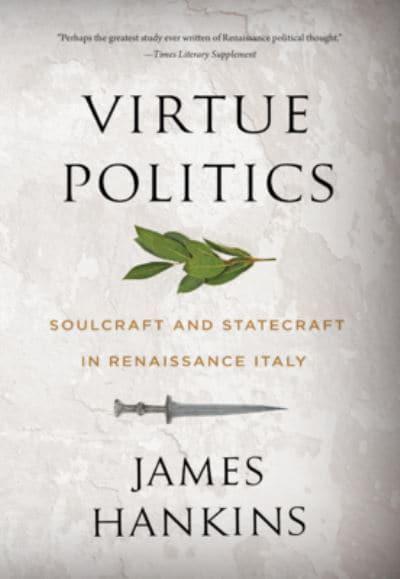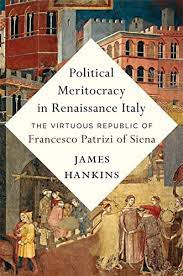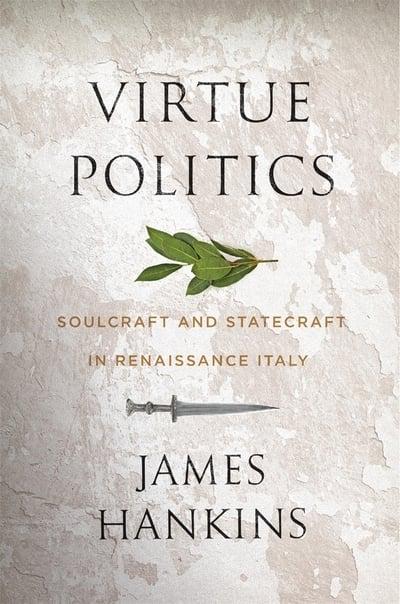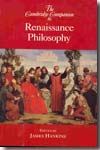Virtue politics
soulcraft and statecraft in Renaissance Italy
- ISBN: 9780674278738
- Editorial: The Belknap Press of Harvard University Press
- Fecha de la edición: 2023
- Lugar de la edición: Cambridge (MSS). Estados Unidos de Norteamérica
- Encuadernación: Rústica
- Medidas: 24 cm
- Nº Pág.: 768
- Idiomas: Inglés

Convulsed by a civilizational crisis, the great thinkers of the Renaissance set out to reconceive the nature of society. Everywhere they saw problems. Corrupt and reckless tyrants sowing discord and ruling through fear; elites who prized wealth and status over the common good; religious leaders preoccupied with self-advancement while feuding armies waged endless wars. Their solution was at once simple and radical. "Men, not walls, make a city," as Thucydides so memorably said. They would rebuild the fabric of society by transforming the moral character of its citizens. Soulcraft, they believed, was a precondition of successful statecraft.
A landmark reappraisal of Renaissance political thought, Virtue Politics challenges the traditional narrative that looks to the Renaissance as the seedbed of modern republicanism and sees Machiavelli as its exemplary thinker. James Hankins reveals that what most concerned the humanists was not reforming institutions so much as shaping citizens. If character mattered more than laws, it would have to be nurtured through a new program of education they called the studia humanitatis: the precursor to our embattled humanities.
1. A Civilization in Crisis
A New “Paideuma” and the Birth of the Humanities
The Causes of the Crisis
The Reform of Christian Culture
The Humanist Movement Takes Shape
2. Virtue Politics
Obedience and Legitimacy
Virtue Politics
Classical Sources of Virtue Politics
How Not to Reform a Republic
Eloquence and the “Virtuous Environment”
A New Way of Thinking about Politics
3. What Was a Republic in the Renaissance?
The Renaissance Concept of the State
What Is the Meaning of Respublica in the Italian Renaissance?
Respublica Romana
Respublica in Medieval Scholasticism
Leonardo Bruni and Respublica in the Fifteenth Century
Respublica: An Idealization of Ancient Government
Is Civic Humanism Found Only in Non-monarchical Republics?
4. Taming the Tyrant
Tyranny in Greek Philosophy
Cicero’s Understanding of Caesar’s Tyranny as Violation of Ius
Bartolus of Sassoferrato and Baldo Degli Ubaldi
Petrarch on Living with Tyrants
Was Caesar a Tyrant?
Petrarch, Salutati, Guarino, Poggio
Poggio on Tyranny and the “Problem of Counsel”
Pier Candido Decembrio on the Virtues of a Tyrant
The Recovery of Ancient Greek Sources on Tyranny
5. The Triumph of Virtue: Petrarch’s Political Thought
Petrarch’s Politics of Virtue
Cola di Rienzo: Populism and Its Limits
Petrarch’s New Realism
6. Should a Good Man Participate in a Corrupt Government? Petrarch on the Solitary Life
The De Vita Solitaria: An Ideal of Private Life for Literary Men
The Defense of Private Life
Seneca versus Augustine: Political Obligation and Political Autonomy
7. Boccaccio on the Perils of Wealth and Status
Boccaccio’s Political Experience
The Need to Reform the Materia Prima of Politics: Human Nature
Virtue, Education, and Tyranny
Boccaccio and the Humanist Debate about Private Wealth and Economic Injustice
Boccaccio and Virtue Politics
8. Leonardo Bruni and the Virtuous Hegemon
Why Florence Deserves to Be the Heir of Rome: The Panegyric of the City of Florence
Political Liberty as a Source of Virtue
The Etruscan Model: Leadership in a Federal Republic
Dante and Bruni on the Legitimation of Empire
9. War and Military Service in the Virtuous Republic
Late Medieval Civic Knighthood and the Context of Leonardo Bruni’s De Militia
Excursus: The Humanists and Partisan Politics
Bruni’s De Militia: A New Interpretation
Excursus on the “Virtuous Environment”: Donatello and the Representation of Classical Military Virtue
Do Humanist Teachings on Warfare Anticipate Machiavelli?
Virtue in Military Life
Roberto Valturio on the Education of Soldiers
10. A Mirror for Statesmen: Leonardo Bruni’s History of the Florentine People
History as Political Theory
Virtue in the Service of the Republic’s Glory
The Primacy of the Popolo and the Suppression of Factions
Moderation in Politics as the Key to Social Concord
11. Biondo Flavio: What Made the Romans Great
The Roma Triumphans and the Revival of Roman Civilization
What Was the Respublica Romana for Biondo?
Biondo’s Virtue Politics, Republicanism, and the Greatness of Rome
A Cosmopolitan Papalist
12. Cyriac of Ancona on Democracy and Empire
A Short History of the Term Democratia
Cyriac of Ancona’s Attempted Rehabilitation of the Term Democratia
Cyriac the Caesarian
13. Leon Battista Alberti on Corrupt Princes and Virtuous Oligarchs
Why Virtue Is Incompatible with Court Life
Who Should Constitute the Political Elite?
The De Iciarchia and the Regime of Virtuous “House-Princes”
14. George of Trebizond on Cosmopolitanism and Liberty
George’s Attack on Nativism and Defense of Cosmopolitanism
A Renaissance Libertarian?
15. Francesco Filelfo and the Spartan Republic
Filelfo and the Recovery of the Spartan Tradition
Filelfo and Humanist Adaptations of the Myth of Sparta
16. Greek Constitutional Theory in the Quattrocento
The “Second Wave” of Greek Constitutional Theory
Legitimation and the Republican Regime
Francesco Patrizi on Republican Constitutions
Delegitimation: Bruni and the Chivalric Ideal
Substitution: Platonizing Venice’s Constitution
Mario Salamonio Compares Florence to Athens
17. Francesco Patrizi and Humanist Absolutism
The Recovery of Ancient Greek Monarchical Theory
Patrizi and His Project in the De Regno
Virtuous Royal Legitimacy and Humanist Absolutism
The Argument for Monarchy
Can Monarchical Power Be Virtuous?
How the King May Become Virtuous
18. Machiavelli: Reviving the Military Republic
The Calamità d’Italia
Machiavelli and Humanist Literary Culture
Machiavelli’s Political Education and The Art of War
Why Princes and Republics Should Follow the Ancient Way of Warfare
19. Machiavelli: From Virtue to Virtù
Machiavelli’s Prince and Renaissance Conceptions of Tyranny
The Machiavellian Revolution in Political Thought
Machiavelli’s Virtù
20. Two Cures for Hyperpartisanship: Bruni versus Machiavelli
Two Competing Narratives of Florentine History
The Ordinances of Justice
Walter of Brienne and the Instability of Tyranny
The Restoration of Popular Institutions in 1343
Two Cures for Hyperpartisanship
21. Conclusion: Ex Oriente Lux
Appendixes
A. Petrarch on Political Obligations: De vita solitaria 2.9.19–22 (Chapter 6)
B. Speech of Rinaldo Gianfigliazzi before the Florentine Priors, 1399, from Leonardo Bruni’s History of the Florentine People, 11.75–78 (Chapter 10)
C. Renaissance Editions, Translations, and Compendia of Francesco Patrizi of Siena’s Political Works (Chapter 16)
Notes
Note on Sources and Translations
Abbreviations
Bibliography
Texts and Translations
Secondary Literature
Acknowledgments
Index of Manuscripts and Archival Documents









